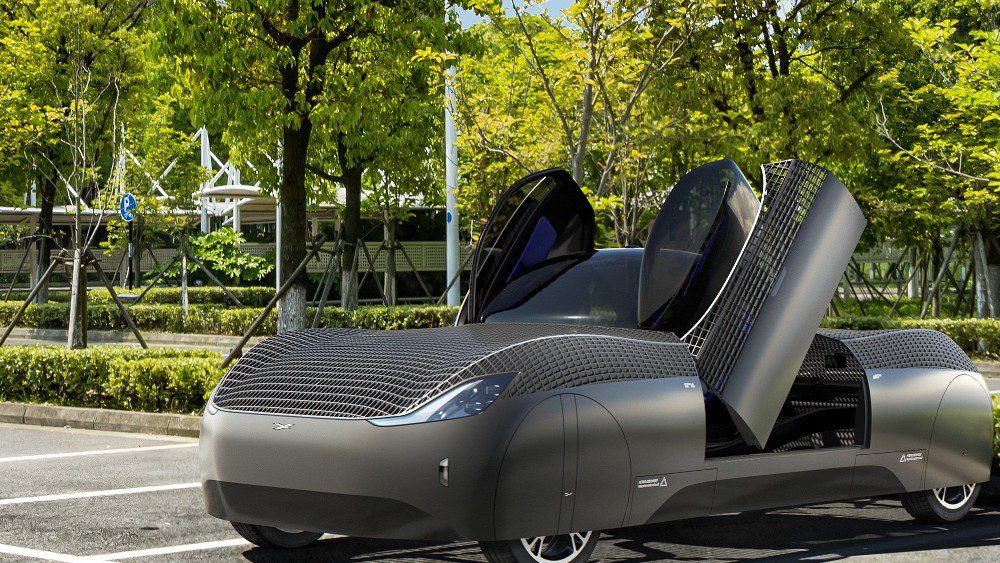Alef Aeronautic’s Model A flying electric vehicle has received a limited special airworthiness certification from the Federal Aviation Administration (FAA), making it the first car to clear the U.S. government’s operation and safety standards for aerial transportation.
The Model A, as advertised, is a $300,000 two-door, all-electric vehicle capable of both land and air travel. On the ground, the EV reportedly boasts 200 miles of driving range using its hub motor, while in the sky, Alef Aeronautics claims the flying car can travel up to 110 miles using eight propellers. When preparing for taking off, the body of the vehicle revolves around the stationary cabin, first sideways, then forward, such that the driver and passenger side form biplane-like wings above and underneath the cockpit. The curious design negates the need for a runway, allowing for vertical takeoff. A solid mesh design allows for airflow through the hood and trunk areas of the car. The company, founded in 2015, has evidently yet to release test or flight footage.


While the Model A has taken a major step towards a commercial release by earning the FAA’s approval, a look at the particulars of the electric vehicle’s new certification suggests that it likely has many more regulatory challenges to defeat before becoming a marketable product. The special airworthiness certification is awarded to vehicles “in a condition for safe operation” following a maintenance inspection. According to an Alef Aeronautic’s press release, the flying car also received a “limited” certification, which the FAA’s website says “is issued to operate surplus military aircraft that have been converted to civilian use…” Vehicles in this category are not allowed to carry passengers or property for compensation or hire and can only fly in designated locations. Furthermore, the company notes that the FAA has yet to develop procedures for electrical verticle takeoff and landing vehicles (eVTOL).
Given these vague specifications, it may be overly optimistic to say that Alef Aeronautic’s unique design has earned a meaningful amount of new credibility. Efforts to produce a (profitable) flying car are almost as old as the automotive industry itself, and precious few have ever made it in front of the public. While the Model A is the first of its kind to receive certification in the U.S., it faces stiff competition from technology startups across the globe. Still, none of this is to say that the electric vehicle has no future, however. Since its reveal in 2022, the company says it has received more than 440 preorders for the unique product.




